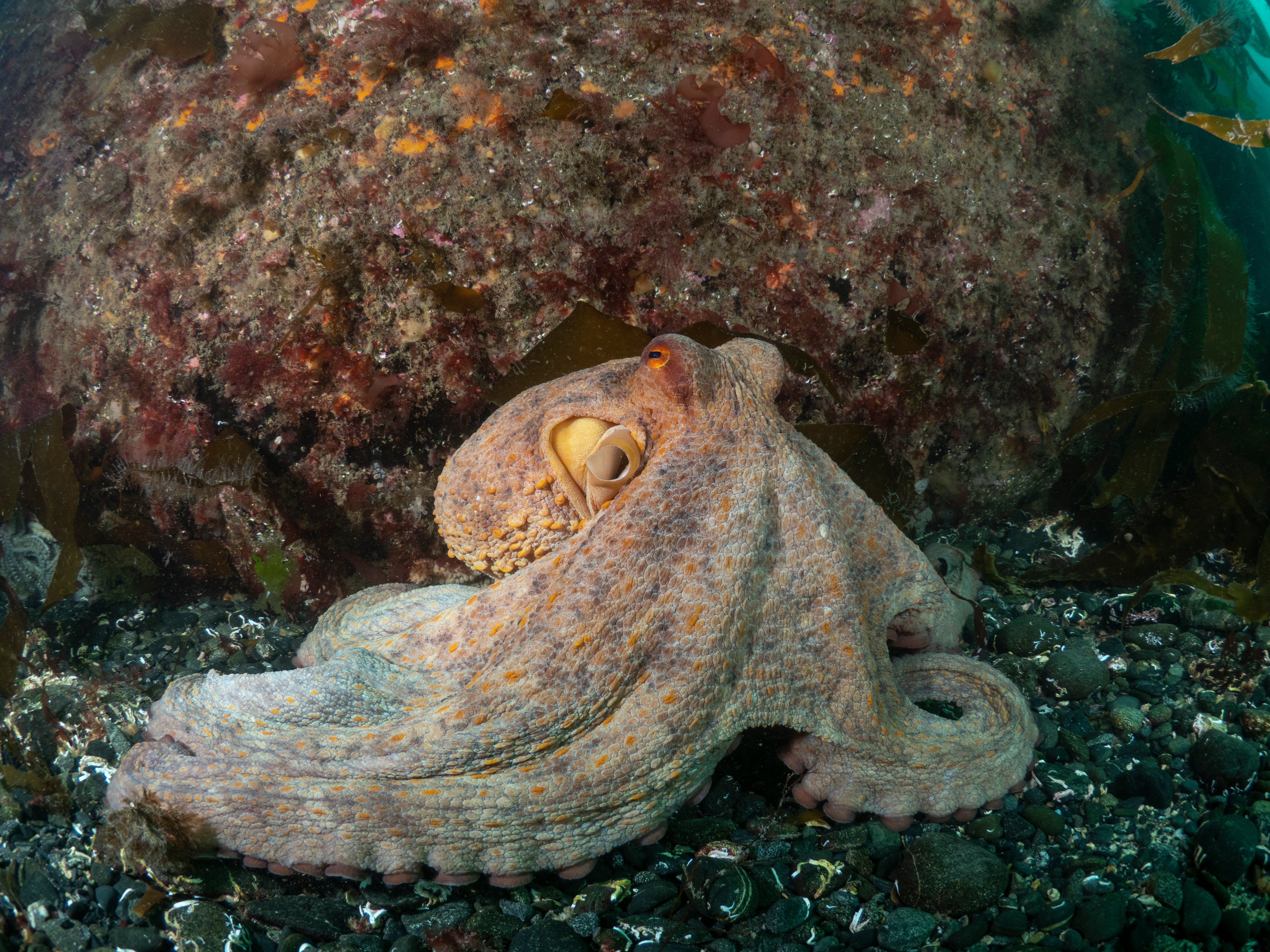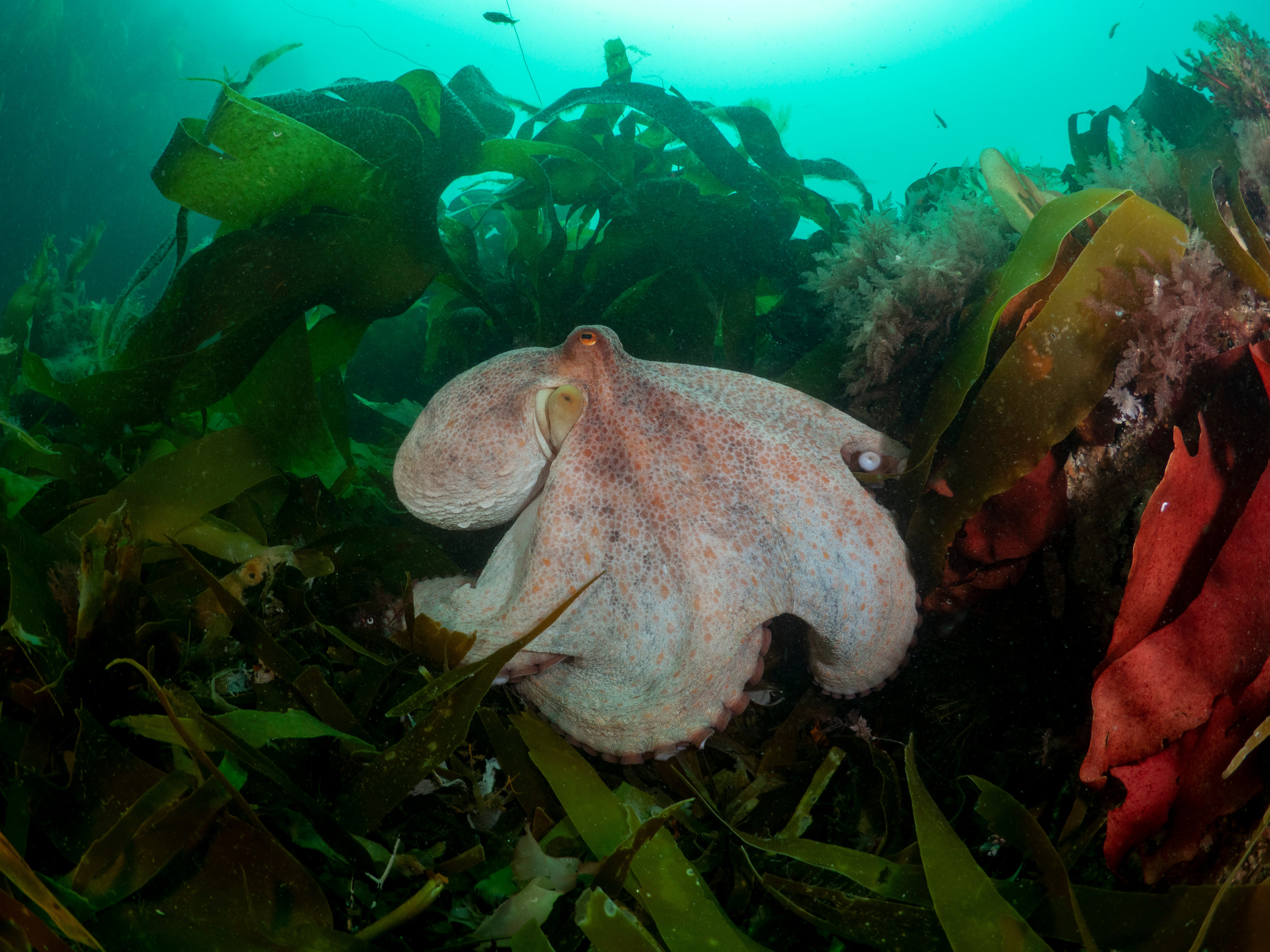Mystery surrounds octopus boom in Cornwall as fisherman catches 150 in one day
One Cornish fisherman reported catching 150 in one day, compared with his usual catch of one or two a year

Your support helps us to tell the story
From reproductive rights to climate change to Big Tech, The Independent is on the ground when the story is developing. Whether it's investigating the financials of Elon Musk's pro-Trump PAC or producing our latest documentary, 'The A Word', which shines a light on the American women fighting for reproductive rights, we know how important it is to parse out the facts from the messaging.
At such a critical moment in US history, we need reporters on the ground. Your donation allows us to keep sending journalists to speak to both sides of the story.
The Independent is trusted by Americans across the entire political spectrum. And unlike many other quality news outlets, we choose not to lock Americans out of our reporting and analysis with paywalls. We believe quality journalism should be available to everyone, paid for by those who can afford it.
Your support makes all the difference.Fishermen, divers and snorkelers off Cornwall’s south coast have reported seeing a spike in the number of octopuses, prompting conservationists to say it could be evidence of a rare population boom.
Divers have reported an increase in numbers of the common octopus in Cornish waters, particularly around the Lizard Peninsula, according to the Cornwall Wildlife Trust.
At the same time, local fishermen have said they have caught large numbers in their lobster and cuttlefish traps, with one Mevagissey fisherman reporting catching 150 in one day, compared with his usual catch of one or two a year.

“I got really excited when I started receiving messages from our divers, not only because sightings of these striking animals are few and far between, but also because they’d seen several of them on one dive,” said Matt Slater, a marine conservation officer at the Cornwall Wildlife Trust, in a statement announcing the sightings.
“They are such amazing, alien creatures – one of the most intelligent animals in our oceans – and to witness a population explosion in our local waters would be incredible,” he added.
The common octopus is rarely found in UK waters and has been recorded by the trust just twice a year on average. They are highly intelligent creatures with soft bag-like bodies and eight long arms, with rows of suckers. They generally feed on crabs and can change colour to better blend in with their environments to avoid detection, according to the charity The Wildlife Trusts.
Population booms of octopuses are rare but not unheard of, according to the trust. The last boom in England was in 1948, when sightings of octopuses were reported along the south coast from Land’s End to Sussex.
Before that the last time a boom was reported was in 1899, according to the trust.
It currently remains unclear if the increased sightings are a one-off spike or if octopus populations are steadily on the rise, Mr Slater said.
The Cornwall Wildlife Trust said octopus populations had fluctuated for decades.
The cause of the spike in numbers is not yet known, but the trust said female octopuses lay between 100,000 and 50,000 eggs and that, although normally many of those perish, if conditions are good many can survive – leading to a boom.
Rising sea temperatures can also speed up their already rapid growth rates, but not enough research has been done on this to say conclusively, it added.
Join our commenting forum
Join thought-provoking conversations, follow other Independent readers and see their replies
Comments